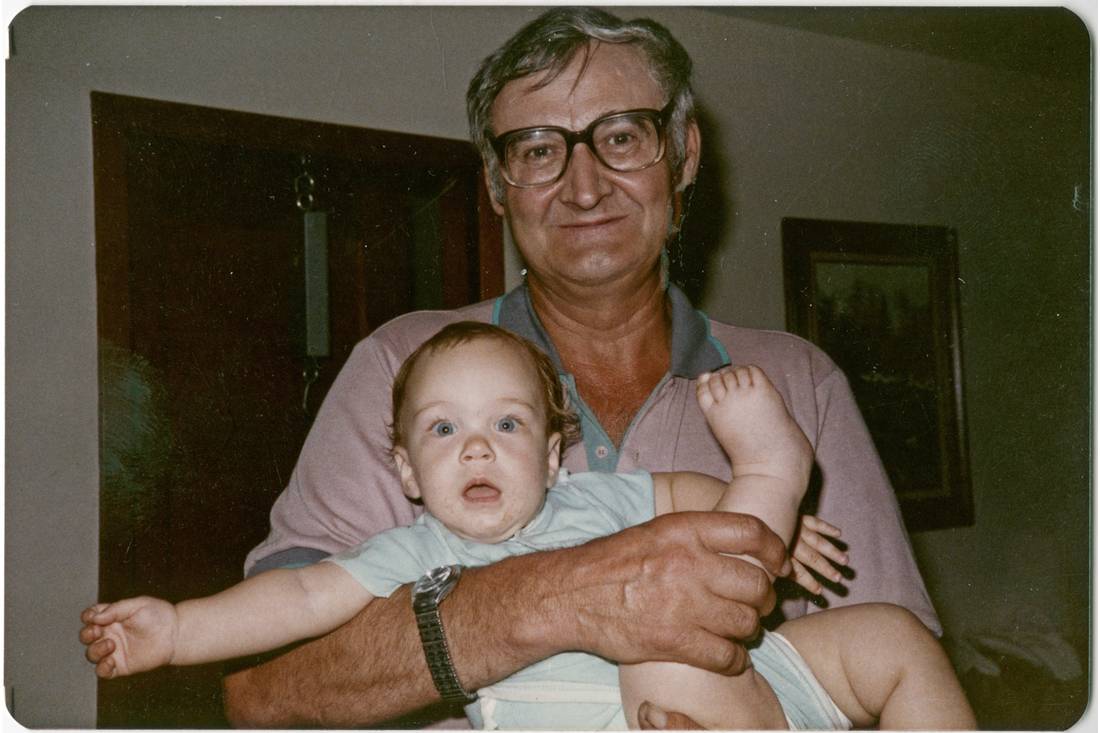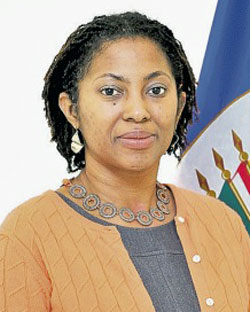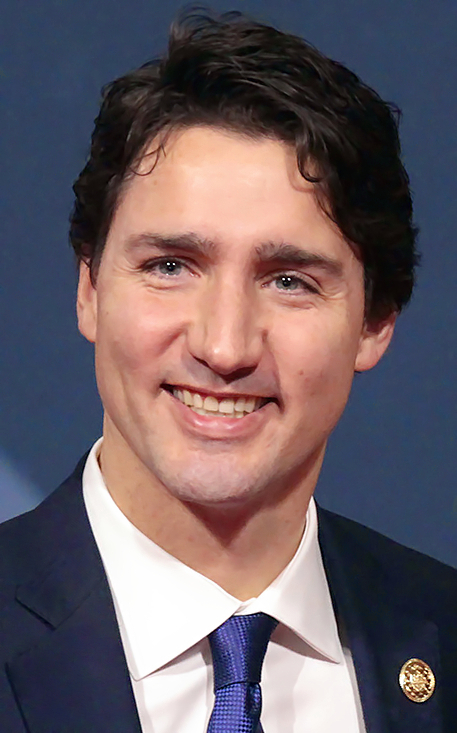Canada can nudge Jamaica toward justice
Colin Stewart is a 45-year journalism veteran living in Southern…
KLIPPERT, KINGSTON AND COMMON-LAW KINSHIP

Canadian Prime Minister Justin Trudeau has indicated that he will posthumously pardon Everett George Klippert for engaging in consensual sodomy. Klippert’s 1965 conviction under the British-imposed anti-gay law and his subsequent life sentence as a sex offender led to a public outcry that caused Justin’s father, Pierre Trudeau (then Justice Minister and eventual Prime Minister) to call for the decriminalization of sodomy.
Nearly 50 years ago the elder Trudeau made the now famous statement:
“There’s no place for the state in the bedrooms of the nation.”
He then pushed legislation through Parliament in 1969 that scrapped the odious colonial statute. England had jettisoned the law two years earlier but it was not finally expunged from the UK until 1982, after Northern Ireland’s law was declared invalid by the European Court of Human Rights.
Five decades after Klippert’s conviction I could now face a similar fate in my homeland of Jamaica. As another former British colony, we also inherited the Victorian-era decree that criminalized all forms of male same-gender intimacy. However, in 2011, Jamaica made the law worse and introduced a new Sexual Offences Act mandating that anyone convicted of gay acts be registered as a sex offender and always carry a pass. Failure to do so could result in 12 months imprisonment AND a $1 million fine for each offence.
As a gay Jamaican married to a man under the laws of Canada and with residences in both countries, I am liable for prosecution every time that my husband and I hold hands in the privacy of our bedroom in Jamaica.
I have therefore launched a constitutional claim against the archaic 1864 British colonial anti-sodomy law on the grounds that it violates my rights under the 2011 Charter of Fundamentals Rights and Freedoms. I am also challenging the sex offender registry requirements for consenting adult gay men.
My case will be difficult because there was an attempt by our legislators to “save” the statute from judicial review. Therefore, as long as the anti-sodomy law remained unchanged, it could not be challenged in court. However, it is my argument that by adding the new sex offender registrations requirements, then that has opened the statute for constitutional review.
It is important to note that a Canadian legal academic was instrumental in ensuring that Jamaica’s Charter does not fully protect LGBTI citizens. On a visit to our Parliament she advocated strongly for Jamaica NOT to adopt the Canadian Charter wholesale as a model because it could lead to such “horrors” as human rights for gays.
As a result, the Jamaican Charter does not protect persons on the grounds of “sex” because that was how “sexual orientation” discrimination was banned in Canada. Instead, Jamaica uses the term “male or female” but since only male homosexuals acts are criminalized then the anti-discrimination provisions can still be employed. Such is the tangled web woven by those who try to frustrate human rights!

On Wednesday, March 2, Jamaican Tracy Robinson, a legal academic and former Special Rapporteur on the rights of LGBTI people at the Inter-American Commission on Human Rights, delivered a talk in Toronto on the robustness of Caribbean homophobic laws. In her insightful lecture Ms. Robinson emphasized that most Caribbean people love the British-imposed anti-sodomy laws too much to support their repeal. In fact, the laws have been adopted as part of our Caribbean culture. Therefore, it is largely pointless to encourage getting rid of these edicts as being alien relics.
I have to agree with Ms. Robinson’s assessment based on a recent engagement that I had with a Jamaican government representative in Montreal. I pointed out to the gentleman that the law was actually foreign and so did not truly reflect Jamaica’s values. However, in his words: “We have had over 54 years [of independence] to get rid of it so clearly we think that it is now our law.” While I question just how much our Parliament had an opportunity to soberly deliberate on this Victorian statute and as such whether we would have enacted it post-independence in 1962, I must conclude that, whether out of sheer inertia, or more likely, a deadly fear of the powerful homophobic religious groups, our legislators have very little appetite for jettisoning these discriminatory decrees.
However, during Wednesday’s talk, Ms. Robinson did speak about a “common-law kinship” that binds the former British colonies. She pointed to evidence of a desire by Parliamentarians and jurists from Commonwealth countries in the Global South to be seen as equally “civilized” as their counterparts in the former metropole.
While I suspect (and am counting on) Jamaican judges to adopt this approach, I rather doubt that our legislators will be so moved. I imagine that in Jamaica a paralyzing fear of vote-controlling evangelicals will overrule any Parliamentary common-law kinship on the matter of equality for gays.
This is unlike the Canadian situation of the hipster ’60s, when church groups had far less control over popular culture. The public outcry at the sheer injustice of criminalizing the private lives of consenting adults was indicative of the “free love” movement of that era.

Ironically, one would think that post-slavery societies like the Caribbean shared a similar or more strident view of personal autonomy. But, sadly, that has been perverted by a largely disingenuous campaign by Global-North-backed Christian groups who insist on painting LGBTI people as threats to a “healthy society.” As a result, the last poll that was done on the subject found that in 2014 nearly 91 percent of Jamaicans were in support of the anti-sodomy law. Therefore in Jamaica, common-law kinship on recognizing rights for gays will likely extend to the courts but not much further.
That said, I would still encourage Prime Minister Trudeau on his inevitable visit to Jamaica to share the positives that Canada reaped from repealing the ban on gay love. Prime Minister Trudeau is in a very good place to make this pitch. Not only is his family name highly regarded (the Trudeaus often vacationed on the island and the elder Trudeau was a staunch supporter of Jamaica) but, also, Canada does not have the impediment of being a former colonizer.
Further, Canada and Jamaica share many useful points of historical, social and economic contact, both as former colonies and as current members of the Commonwealth of Nations. Trade and travel between the two countries is also very significant, and Canada provides employment and residence to a significant number of Jamaicans.
Therefore Canada can usefully demonstrate to Jamaica how to build a more harmonious and inclusive society with direct economic and health benefits for all persons through the recognition of LGBTI human rights. As a struggling and socially fractured society, Jamaica would do well to follow the Canadian model of 50 years ago by ending the persecution of gays and allowing us to fully participate in societal kinship.
Related articles
- Trudeau to be 1st Canadian PM to march in gay pride parade (sandiegouniontribune.com)
- Jamaica: Inching towards legal equality (76crimes.com)
- Evicted gay youths under attack (again) in Jamaica (76crimes.com)
- Challenge to Jamaican anti-sodomy law gets under way (76crimes.com)


